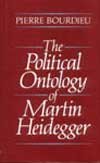
Desire, Meaning and Virtue
This book takes a new look at the discussion of poetry in Plato's early dialogues. It argues that Socrates did not believe poets to be divinely inspired; rather, his treatment of poetry must be approached from the point of view of two key Socratic concerns:... Viac o knihe
Produkt je dočasne nedostupný
71.54 €
bežná cena: 81.30 €
O knihe
This book takes a new look at the discussion of poetry in Plato's early dialogues. It argues that Socrates did not believe poets to be divinely inspired; rather, his treatment of poetry must be approached from the point of view of two key Socratic concerns: the nature of desire, and the distinction between techne (science) and empeiria (a knack). Both point to a radical stance on the nature of psychological states. Socrates argues that all desire leading to action is for our own good, so when we act in error about our good, we do not desire to do what we do. Thus, we don't know what we desire until we know what is good for us. Since there are no irrational desires that can lead us to act, to err is to be ignorant. Therefore, virtue is this techne of knowing what is good for us. Socrates treats all of our psychological states like desire: we cannot have knowledge of pleasures, beliefs, or intentions without knowledge of the reality towards which those states are directed. So, what a poet means can only be understood if the subject matter of the poem is understood (by technai). Accordingly, the knowledge of virtue must primarily be gained through philosophical dialogue.
- Vydavateľstvo: VDM Verlag
- Formát: Paperback
- Jazyk:
- ISBN: 9783639145038


 Anglický jazyk
Anglický jazyk 






 Ruský jazyk
Ruský jazyk 


